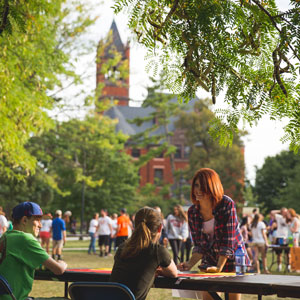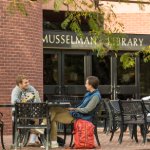
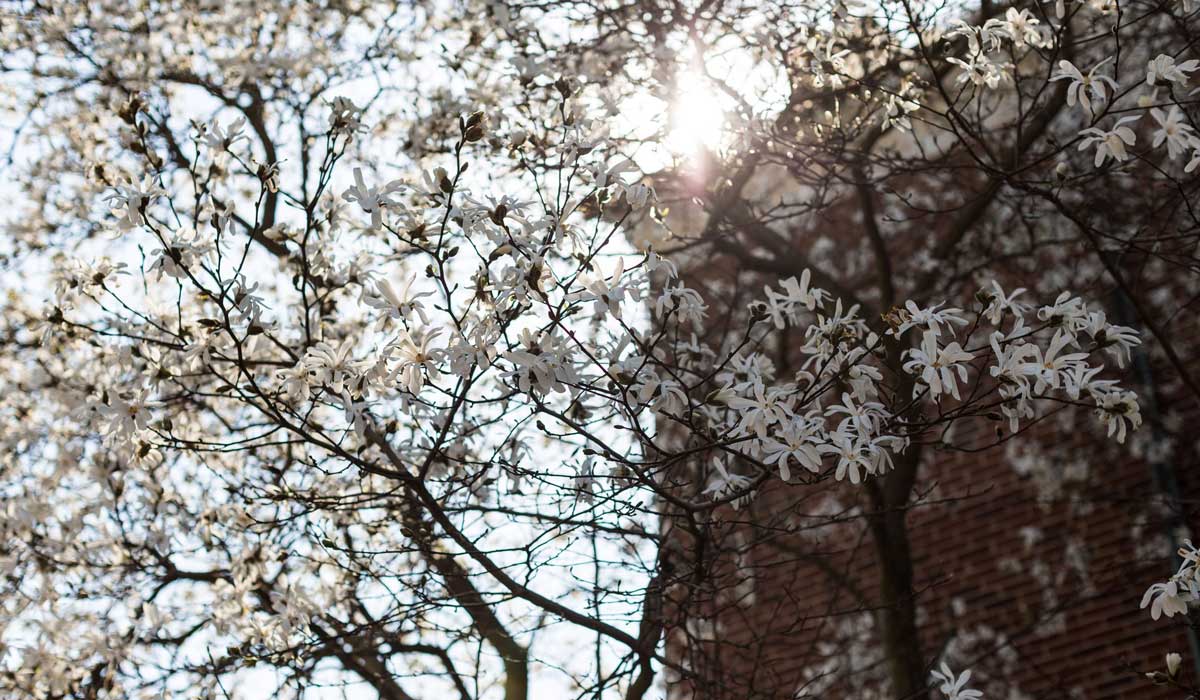
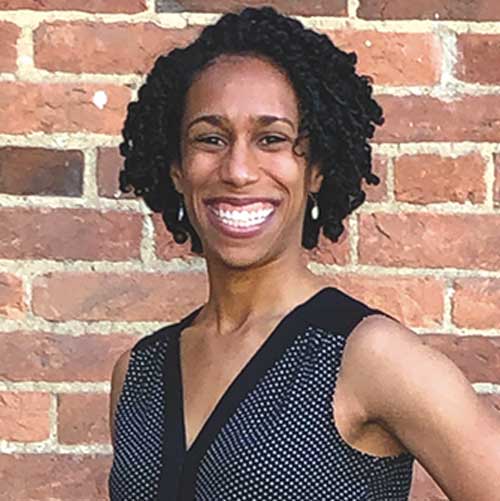
Elizabeth Eckman
Former interim college chaplain for religious and spiritual life
Part of my job puts me in situations at the darkest moments of a person’s life. I’m there for the hard stuff—the trauma, hospital visits, the deaths, and grief. When I was a student at the United Lutheran Seminary, I used to really struggle with being in the room during these moments, not sure of what to say or do.
One day, a nurse thanked me for my time with a patient. And I said, “Why? I didn’t do anything.” She shook her head and told me that I did more than I realize, and that part of my role is to be the presence of hope for those who may not have it in that moment.
I’ve carried this with me in my ministry—that sometimes we are called to hope against all hope for those who may not have it. We are called in the face of injustice, in the face of pain and trauma, and in the face of so much change. We each take our turn holding onto hope for those around us, and it starts by just being in the room.
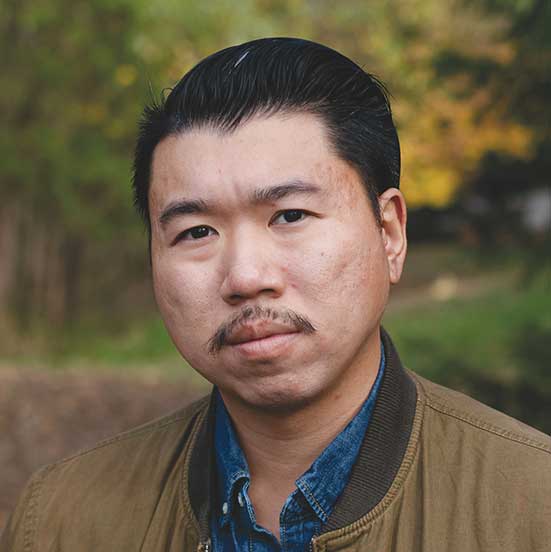
Eric Lee ’15
Freelance photojournalist
Never before did I think Asian American stories would be shared like they are now, especially as Hollywood movies, best-selling books, and front-page photos.
Two years ago, I turned my lens to a question: What does it mean to be Asian American? To be called “American” is to be called too “white,” while being Asian meant not being “white” enough.
In 2021, my lens is turned toward the “recent” hate crimes against my community. I use quotations around recent because anti-Asian hate has been part of U.S. history ever since freed Filipinos settled in Louisiana in the 1500s. “Don’t cause any trouble,” my mom always told me.
I look at the recent attacks and cringe. I’ve photographed rallies and stories related to the hate. They can be painful and agonizing, but looking around and seeing people who look like my grandparents, my cousins, my uncles, and aunts is comforting. I’m reminded that there is hope. It means our community is coming together to say, “We are not invisible anymore.”
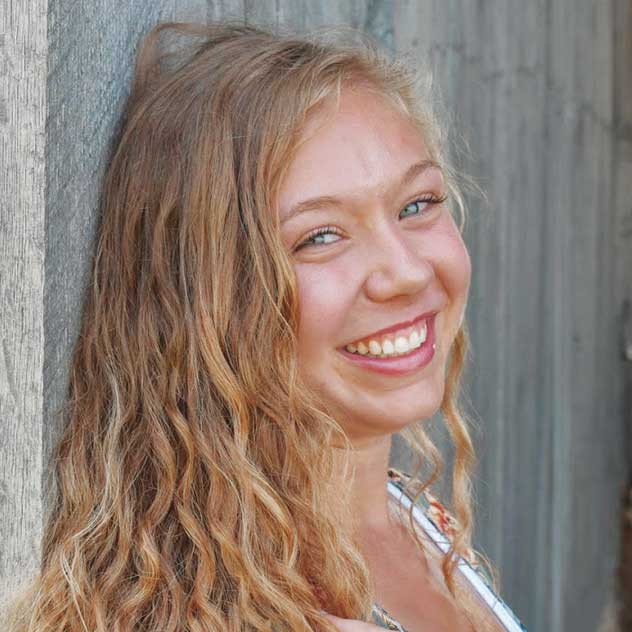
Rachel Main ’22
History major, peace and justice studies and economics double minor
Hope is something that everyone values, yet it is so hard to obtain. Why is that? Maybe because when we need it the most, we are struggling. When we are depleted and unsure, it can be hard to garner energy to counteract overwhelming feelings. Others may tell us to have faith and be hopeful, but their nonchalance makes us question why we are having such a difficult time. We do not want to be a burden and instead try to independently conquer our struggles.
However, hope is like a fire. If it is not supported and cared for, it will suffocate. If we do not have the energy to support our hope alone, it is so easy to lose it. Working as a PEEP (Peers Educating and Supporting Peers to Succeed) with Counseling Services has taught me how crucial our community and support systems are to keeping our hope alive. Despite the isolation of our thoughts, we are not alone in our experiences.
Hope can be as important as the ability to make it to the next day, and when people care about us and support our growth, it allows us to continue. Hope is never absent; it just takes encouragement, like we all do.
“Hope provides new visions and pathways for imagining our world so that we can create and cultivate spaces for becoming and actualizing our full humanity.”
— Prof. Brent Talbot
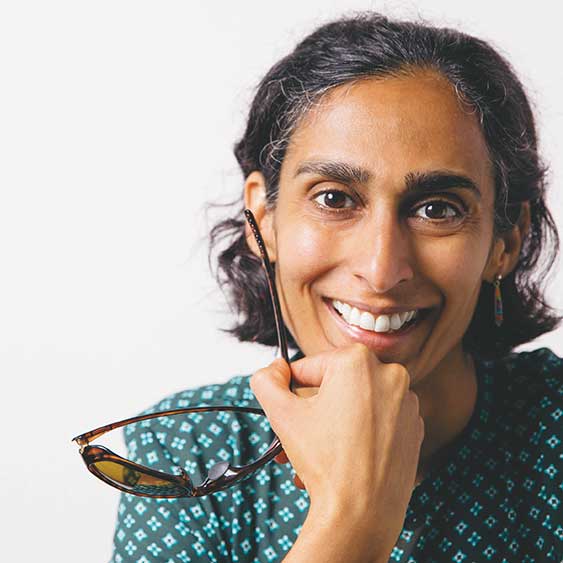
Salma Monani
Department chair and associate professor of environmental studies
Speak to anyone who studies the environment, and we will articulate a certain despondency. We are in the throes of growing climate instability, accelerated biodiversity loss, and ecosystem collapse, all of which are fueled by certain types of human activities. Depressingly, the burden of adverse impacts is unevenly felt, with communities least to blame for environmental disasters being most vulnerable to their effects.
How, in the face of such crises, do we cultivate hope? Some environmental thinkers argue that hope is a useless platitude. “I hope for a sustainable future,” they argue, is very different from saying, “I can act for a sustainable future.”
While there is truth to this reasoning, as an environmental educator, I find it is helpful to think of hope as a powerful antidote to helplessness. To hope for something means acknowledging the uncertainty of an outcome. Uncertainty allows us to recognize our ability to positively shape the outcome. Hope is a gift that can motivate us to act today for a more sustainable world, and it is certainly something I see my students do on a daily basis.
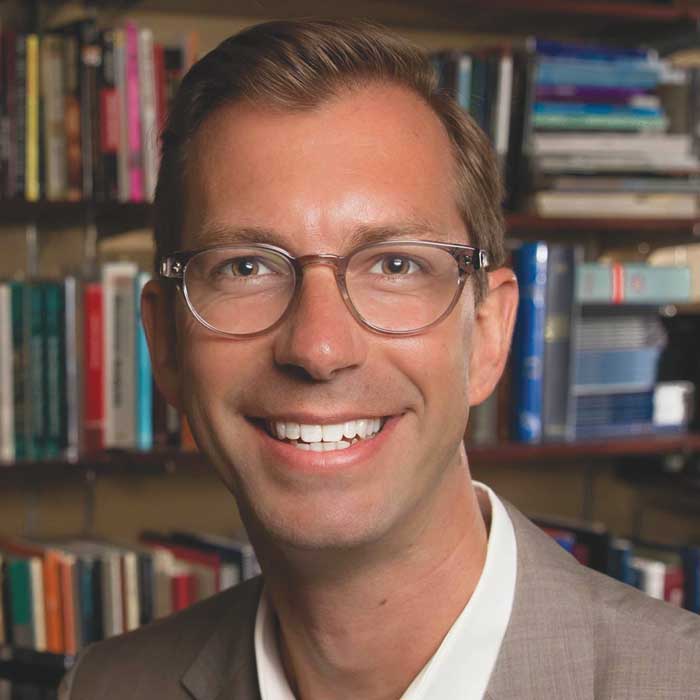
Brent Talbot
Professor and coordinator of music education at the Sunderman Conservatory of Music
Hope is a foundational aspect of my pedagogy. It is what Paulo Freire calls “the critical effort through which [people] take themselves in hand and become agents of curiosity.”
Hope is about naming the conditions of our world and seeing possibilities that others have yet to imagine—to learn, to discover, and to create solutions to the challenges we face. Whether it be issues of food scarcity, homelessness, climate change, economic hardship, access to health care, or larger social issues surrounding racism, homophobia, transphobia, xenophobia, etc., hope is what guides and inspires our work.
Hope provides new visions and pathways for imagining our world so that we can create and cultivate spaces for becoming and actualizing our full humanity.


